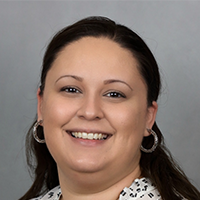Communication Supports for Regulation and Behavior Virtual - 34191
Children with autism and complex communication needs may use behavior as a form of expressive communication and/or may become dysregulated when they don’t understand. Visual supports and establishing communication skills that are functionally equivalent to existing behaviors can help. In this session, AAC strategies will be introduced that can improve receptive and expressive communication, support transitions, increase independence, and decrease behaviors. This session is aligned with the Intervention and Behavior components of the TEA-Required Self-Assessment.
0.15 ASHA CEUs offered.
Audiences
Speech Therapists, Teacher - Special Education, LSSP (Licensed Specialist in School Psychology), Occupational Therapists, Paraprofessionals
Objectives
1. Participants will list four functions of behavior
2. Participants will identify three visual supports that can reduce problem behaviors in children with autism and complex communication needs
3. Participants will describe how AAC can be used to replace problem behaviors in children with autism and complex communication needs
Session
61129
Fee
Please log in to see fees.
Seats Left
1 Wait list
T-TESS
4.3
Registration Deadline
2/3/2025 12:00 am
Credit Type
Professional Development
Duration
01:30
T-PESS
Presenter
Jill E. Senner, PhD, CCC-SLP Technology & Language Center, PC.

For assistance contact:
Laura Lewis
LLewis@esc11.net

For assistance contact:
Daisy Sheardown
Special Education Technician
dsheardown@esc11.net
(817) 740-3606
Offered Again On
- 1/31/2025 11:30 am



 Adding session to the cart, please wait...
Adding session to the cart, please wait...